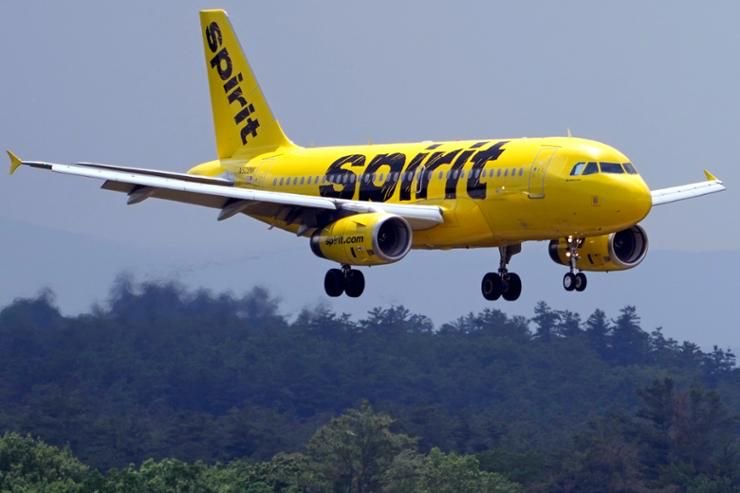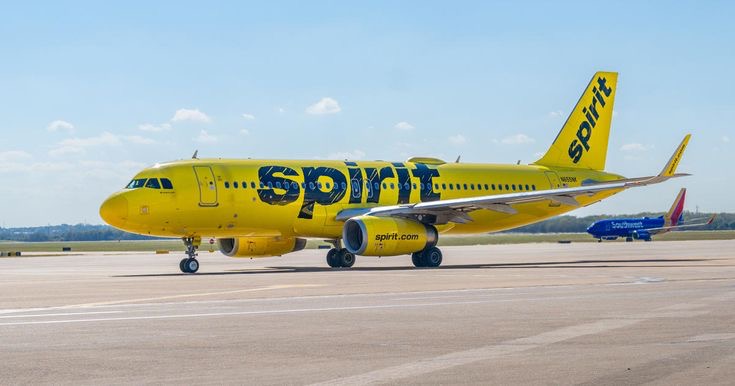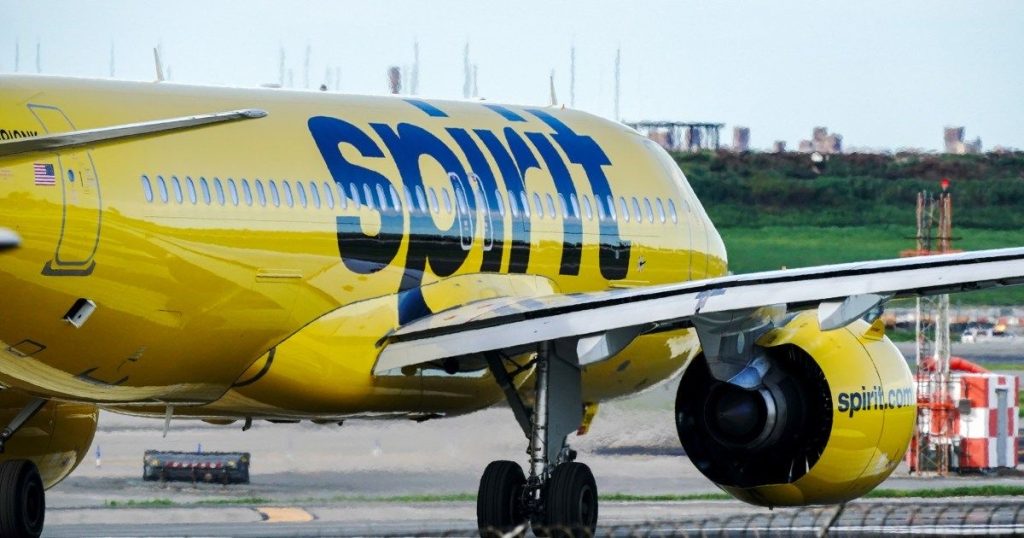Spirit Airlines is laying off hundreds of workers as part of its bankruptcy cost-cutting efforts.
Spirit is letting go of about 200 workers. The airline company is doing this to save money because it is struggling financially. It also wants to recover from bankruptcy, which means the company is trying to re-organize its finances because it does not have enough money to pay off its debts.
The CEO of the airline company, Ted Christie, told employees about the layoffs, explaining that the decision to cut jobs was not an easy one because it affects people’s work and personal lives. The CEO also mentioned that the company is facing big problems and needs to make changes to become more efficient. Spirit Airlines has to get smaller and spend less money in order to fix its finances and get back to being successful again.
Bankruptcy: A Cost-Cutting Strategy
Spirit Airlines’s strategy to improve its finances is to save $80 million every year. Laying off workers is one way to cut costs and save this amount.

According to a court filing, when the company filed for bankruptcy, it had about 13,000 workers. Most of these workers, about 84% of them, were part of unions. However, the job cuts were aimed at workers who were not in unions. The CEO mentioned that with all the changes they have made, including the layoffs, the company has now reached their goal of saving $80 million.
This is not the first time the Dania Beach, Florida-based airline has tried to save costs. To save more money in the past, the airline company had temporarily stopped paying hundreds of its pilots. It also allowed some flight attendants to take long breaks from work if they wanted. It even made its operation smaller and sold some of its Airbus jetliner fleet to raise money.
ALSO READ: Spirit Airlines, Budget Travel Pioneer, Files for Bankruptcy Amid Mounting Losses
Spirit Airlines’ Financial Struggles and Pandemic Impact
Spirit Airlines has been going through serious financial troubles. In 2024, they filed for bankruptcy because they had a lot of heavy debt. The company was struggling to compete with other low-cost airlines.

Spirit used to be a pioneer of the ultralow-cost model. It offered cheap tickets and let people pay extra for things like water, seat choices, and boarding passes. This approach made them very successful for a while. However, Spirit hit a major roadblock when a plan to merge with another airline, JetBlue Airways, was stopped by a federal court on antitrust grounds.
The judge said the merger would hurt competition. This action added to Spirit’s problems, and their struggles, however, did not end there. They had other problems, one of which was issues with engines from a company called Pratt & Whitney.
The pandemic also added to their woes. The airline had to deal with higher costs for their workers after the pandemic. Spirit’s financial problems got worse during the pandemic when very few people were traveling. It has lost over $2.2 billion since 2020. This loss wiped out almost all the profits it had accumulated since it adopted its ultralow-cost strategy in 2006.
Filing for Chapter 11 bankruptcy was a big change for the airline, especially as they had been known for doing well with their low-cost model. Even though things are tough, Spirit’s CEO, Ted Christie, is still hopeful.
He hopes that the company will come out of bankruptcy soon. If they do, it could mean a fresh start for the airline company. However, their struggles show just how unpredictable the airline industry can be, especially for budget airlines that rely on selling a lot of tickets at low prices to make money.
ALSO READ: Another Fast Food Chain Facing Lawsuits Declares Bankruptcy
Retention Bonus Controversy
In November, Spirit Airlines’ CEO, Ted Christie, was paid $3.8 million as a special payment called a “retention bonus.” Christie received this bonus just a week before the company announced that it was going bankrupt.

Also, Spirit was laying off workers in different departments. It had also already temporarily stopped paying some pilots and let flight attendants take longer unpaid leaves to save money, just like the measures it had taken before.
The bonus was approved by Spirit’s board of directors on November 12, 2024. However, it came with a condition. Ted Christie must stay with the company for at least one more year. If he leaves before that time, he has to pay the entire bonus back within ten days.
An airline spokesperson gave an explanation about the controversial bonus. The spokesperson explained that keeping their main leadership team, including Christie, is important. “The Board considered it necessary to maintain the stability of our leadership team. This is very important in supporting the entire organization,” the spokesperson said.
They believe experienced leaders are needed to help the company make good decisions during such a tough financial time. The board felt it was necessary to make sure the company’s leadership stays stable because they play a big role in supporting the airline and its employees.

